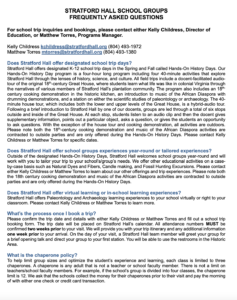Join us as we explore colonial Virginia’s rich and diverse history through the lenses of history, science, and culture.
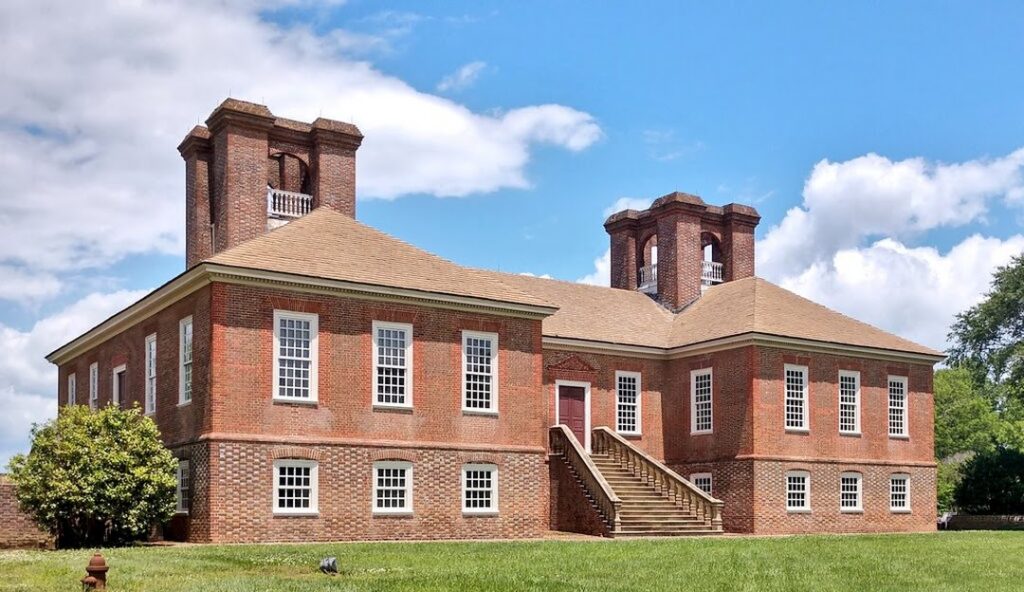
K-12 Program Offerings
Are you a K-12 school teacher, homeschool coordinator, or the leader of a community youth organization that is interested in bringing your students to Stratford Hall Historic Preserve? Stratford Hall was home to four generations of the Lees of Virginia, including the only two brothers to sign the Declaration of Independence, the birthplace of Robert E. Lee, and home to multiple generations of enslaved Africans and African Americans who built and maintained the great house, worked the land, and labored as carpenters, blacksmiths, cooks, manservants, and nannies. Join us as we explore colonial Virginia’s rich and diverse history through the lenses of history, science, and culture. Come explore nearly 2,000 acres and over 250 years of Virginia history by registering for a field trip today! Established by Thomas Lee in the late 1730s, Stratford Hall is one of the great houses of American history.
FIELD TRIP OPTIONS
Organized School Field Trips: (groups of 80 to 120)
A 4-hour program including three 40-minute activities, a guided house tour, and 30-minute lunch break.
Small Group Field Trips: (groups of 25 to 75)
A 3.5-hour program including two 40-minute activities, a guided house tour, and 30-minute lunch break.
Groups < 25 people: (minimum of $100.00, minimum of 12 people)
Programs designed on a case-by-case basis. Includes one 40-minute activity and self-guided children’s audio tour. Groups are welcome to picnic and explore the grounds at their leisure.
School Rates
Student rates $8.00 per student
School faculty rates Free
Chaperone rates $15.00 per person
* Limit of 3 chaperones per class
Caesar’s Kitchen: 18th-Century Foodways
As early as the 1600s, the Virginia Colony was known for its food, feasting, and hospitality. Food played an important part in the social lives of 18th-century Virginias not only by providing basic sustenance, but as a way for colonial Virginians to demonstrate their social standing and exchange information. Join one of our historical interpreters as we dive deeper into the lives of the indentured and enslaved men and women who prepared and served meals to the Lee family. Experience the historic kitchen come to life as you learn about how Atlantic trade influenced foodways in the colony and what foods were being eaten by those who lived and labored at Stratford Hall.
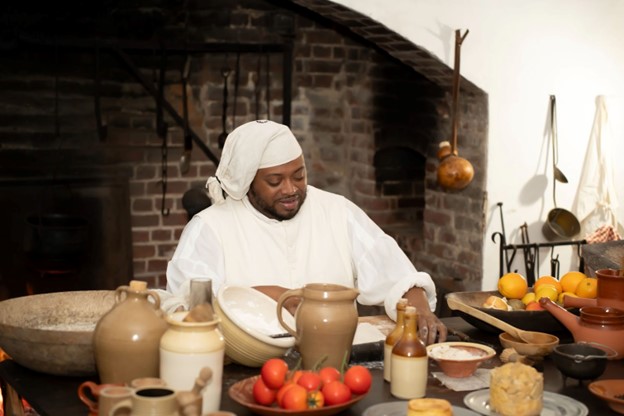
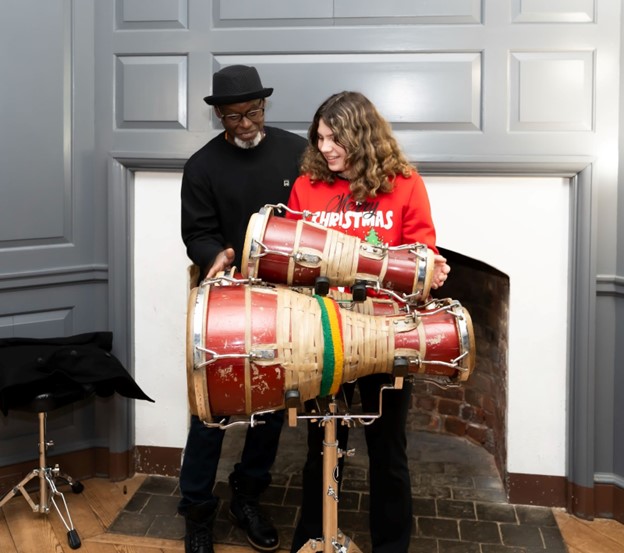
Music of the African Diaspora and
African Drumming
Music is an important part of cultural expression, and can serve various functions in different cultures. Take a voyage across the Atlantic as we connect the dots between West African rhymes and the music of the present day. Through interactive songs and games, students learn about the skills, culture, and customs that enslaved Africans brought with them to the colonies and how those traditions have been incorporated into the fabric of America.
History Under Our Feet: Geology and Paleontology of Stratford Hall
According to the fossil record, the cliffs along the Potomac River on the Stratford Hall property are a geological phenomenon from the middle-Miocene Epoch dating as far back as 17 million years. Explore the scientific field of paleontology, learn how Stratford’s cliffs and fossils were formed and what they can tell us about the history of our planet.
Unearthing History’s Mysteries: Archaeology at Stratford Hall
Archaeology is one of the most valuable tools to help historians learn about history, especially when we are trying to find out about those people and civilizations that were not able to record their stories through a written record. Discover how we use the science of archaeology and the things that people have left behind to help us know more about those who lived and labored at Stratford Hall in the 18th and 19th-centuries.
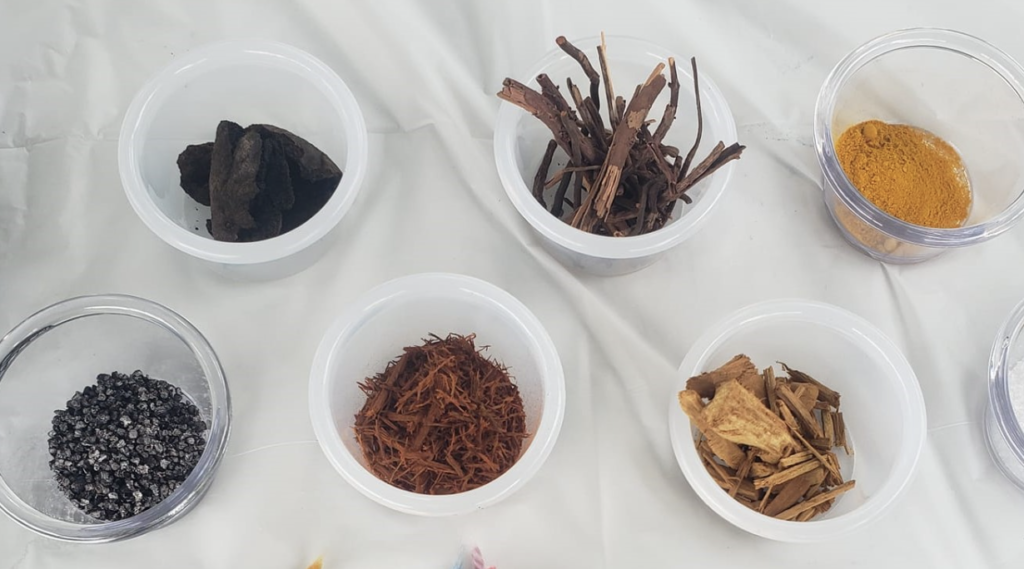
From Field to Fashion: Natural Fibers, Colonial Dyes, and the Atlantic World
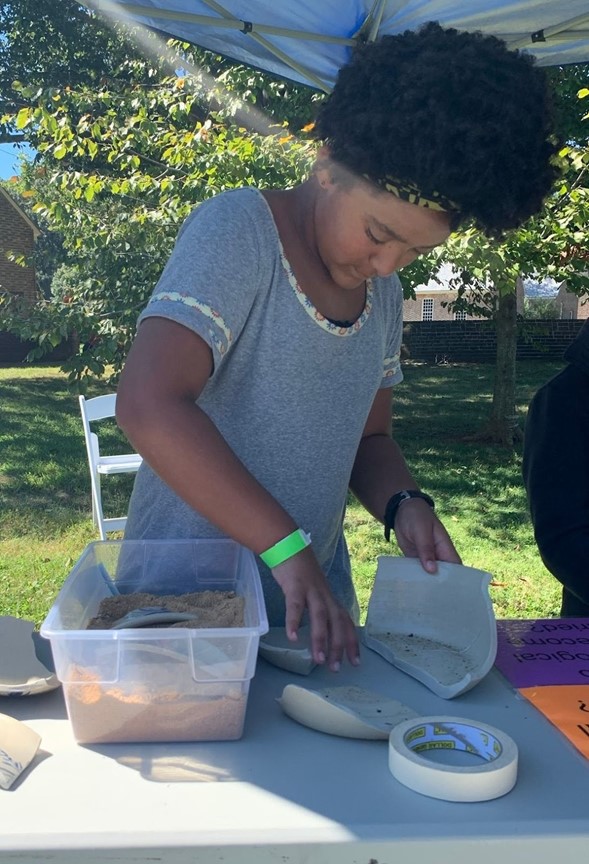
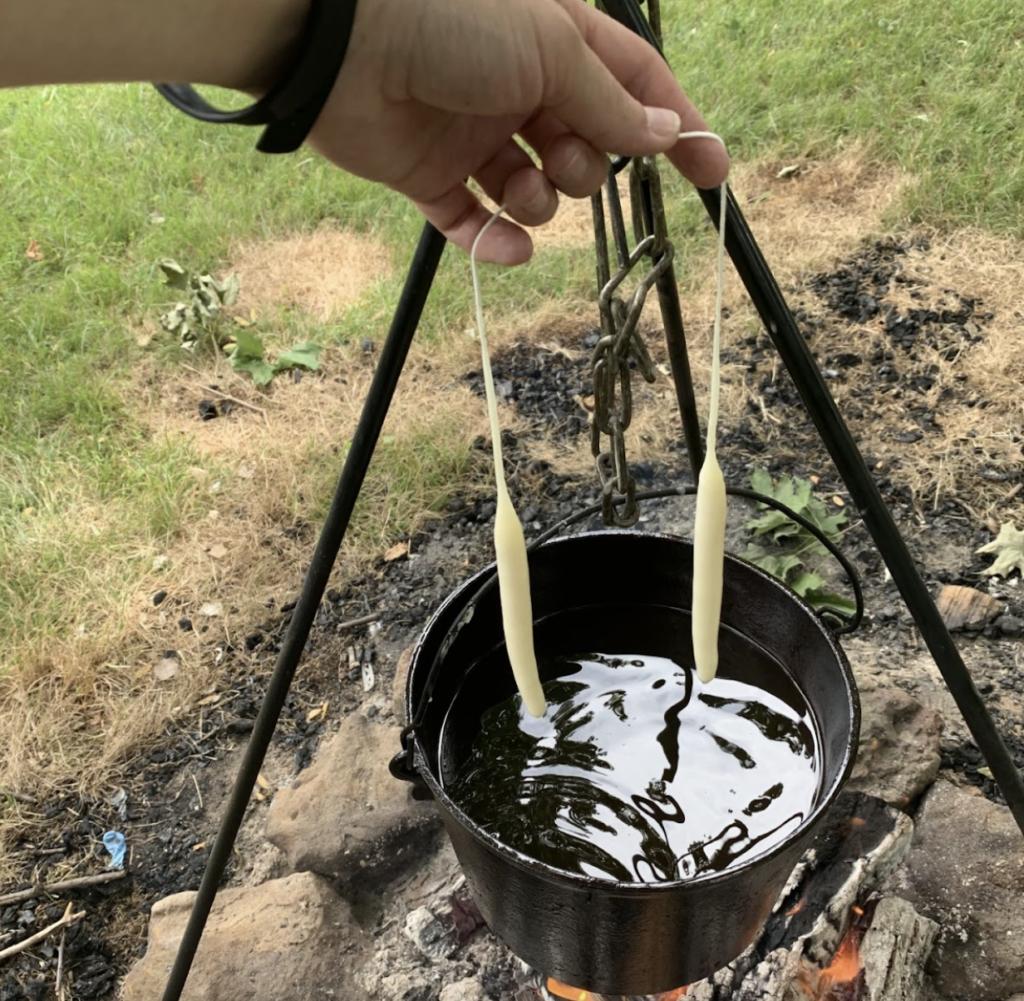
Hands-on candle dipping
Please note that this activity involves open flame and we encourage students to wear close-toed shoes. Hand dipped candle making is available for groups of 75 or less participants, and requires an additional charge of $2.00 per student to cover supply costs.
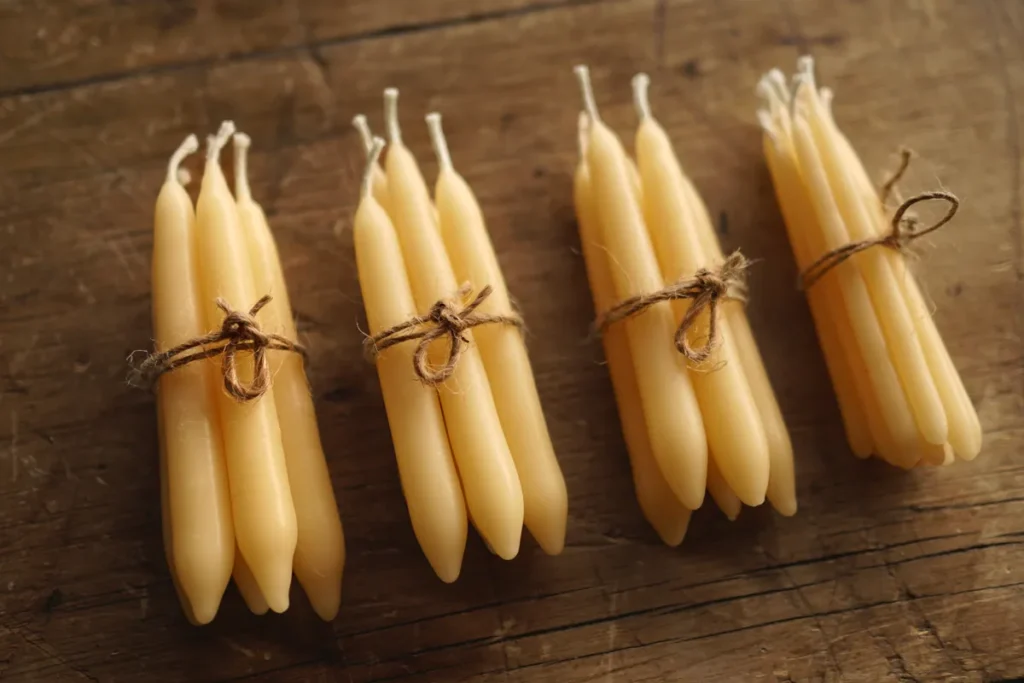
Dating from the middle Miocene Epoch – approximately 17 to 10 million years ago, the cliffs at Stratford Hall Historic Preserve are part of a rare geological phenomenon ranking among the most important fossil research sites in the Mid-Atlantic region. Stratford Hall is known for its abundance of shark teeth and other marine life fossils. Learn about this unique period of Stratford Hall’s history as we explore how the cliffs were formed, how fossils are made, and what they can tell us about the Earth’s history.
Fossil Field Trips
Important – Please note that due to the low temperatures fossil field trips are not scheduled after October 31st or before April 1st.
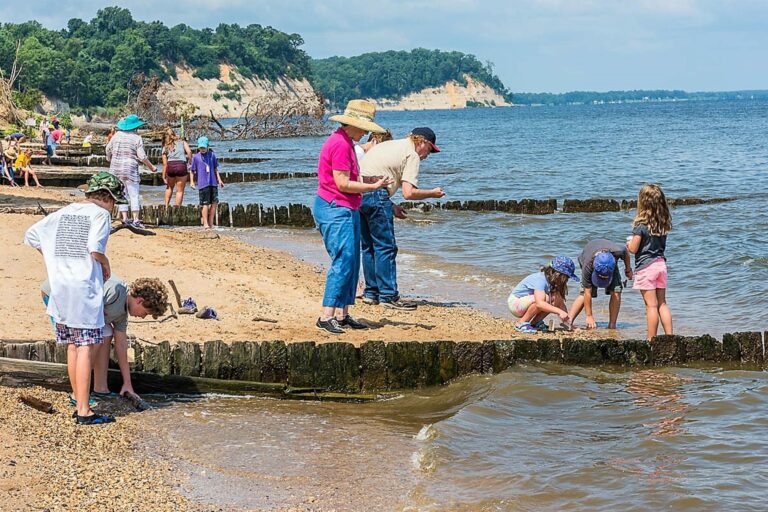
Fossil Trips for Elementary School Groups: A 2.5 hour program that includes a 30-minute introduction to
paleontology and fossils, and 2 hours of shark tooth hunting within the barriers of Stratford Hall’s beach.
Elementary School Rates
Student rates $8.00 per student
School faculty rates Free
Chaperone rates $10.00 per person
Fossil Trips for Middle School, High School, and College Groups: (maximum of 40 participants per trip; $20 per student, $25 per chaperone.)
3.5 hour program that includes a 30-minute overview of paleontology and fossils, and 3 hours of shark tooth hunting beyond the barriers of Stratford Hall’s beach. Paleontology overview may be omitted at the field trip coordinator’s request. Please note that special releases must be signed by all students (guardians if under the age of 18), teachers, and chaperons to have access beyond the barriers, and groups are required to attend a brief safety talk.
Middle School and Above Rates
Student rates $20.00 per student
School faculty rates Free
Chaperone rates $25.00 per person


